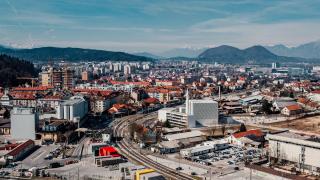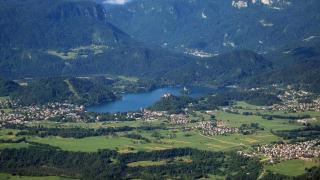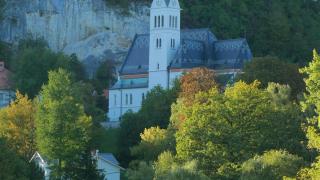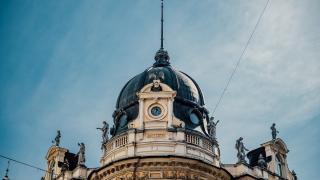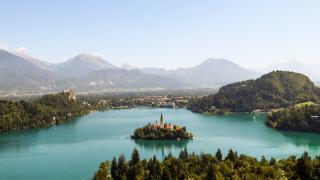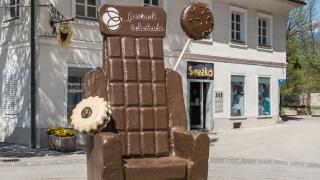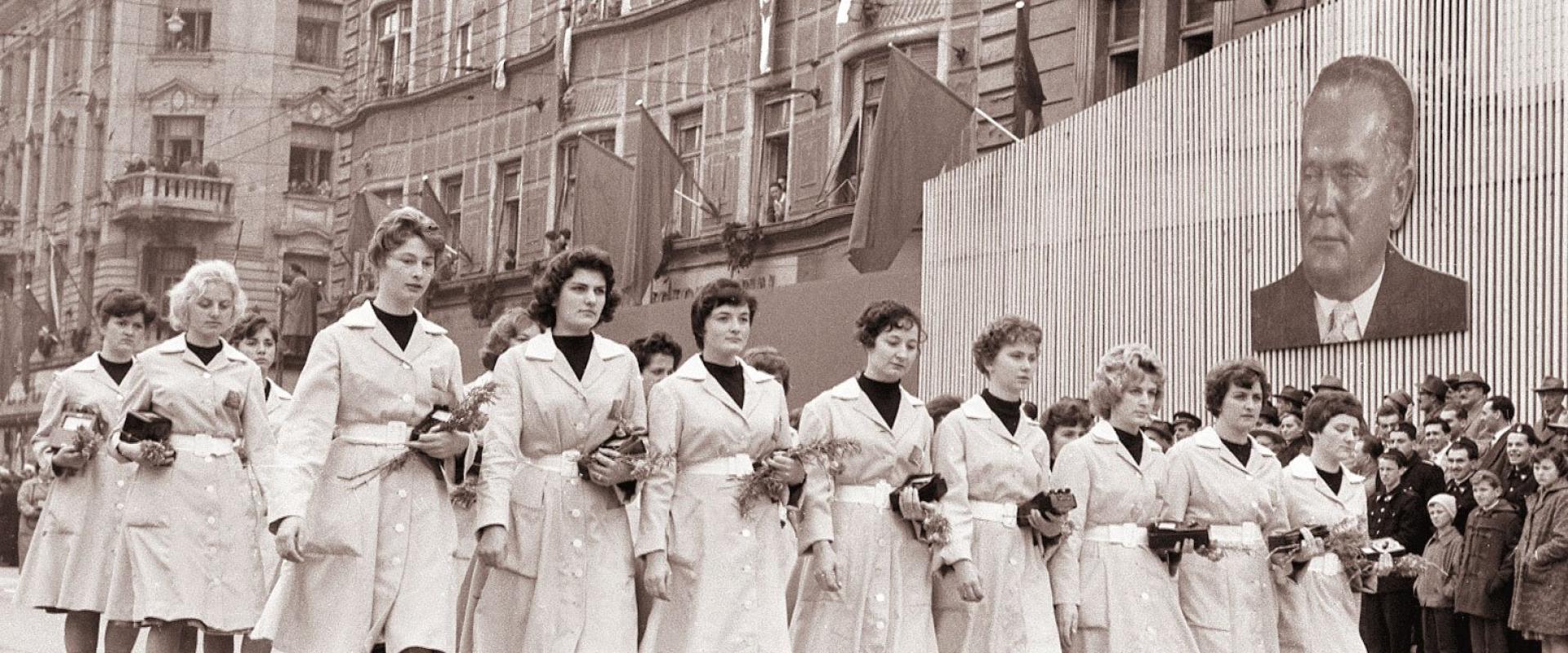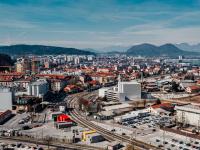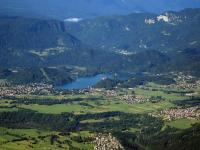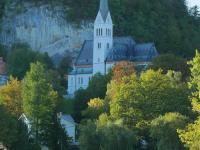Understanding Slovenian Hospitality
Politeness is highly valued in Slovenia. People use formal greetings, such as Dober dan (Good day), in shops and public places. Shaking hands is common when meeting for the first time. Use titles like gospod (Mr.) or gospa (Mrs.) with surnames. Slovenians often remove shoes when entering a home. Hosts may offer kava (coffee) or žganje (local schnapps) to guests. Refusing refreshments is considered impolite. Punctuality is important. Arriving 5-10 minutes late is seen as disrespectful. Gifts such as wine or chocolates are appreciated when visiting someone’s home. In rural areas, hospitality may include homemade bread or potica (walnut cake). Conversation is polite and reserved at first. Loud voices or boasting are frowned upon. In restaurants, tipping is not obligatory but rounding up the bill is common. Public displays of affection are minimal. Dress is neat and modest, especially in formal or family settings. Respect for elders is expected. Always greet with a smile and direct eye contact.
Slovenians greet with a firm handshake and direct eye contact. Use the greeting Dober dan (Good day) in formal settings. Titles such as gospod (Mr.) or gospa (Mrs.) are used with surnames until invited to use first names. In business or official meetings, always address people by their surname and title. First names are used only among friends or after being invited. Avoid overly enthusiastic gestures or hugging on first meetings. Physical distance of about one arm's length is standard. Kissing on the cheek is reserved for close friends or family, not for new acquaintances. Do not pat people on the back or touch their heads. When entering a Slovenian home, remove your shoes. Bring a small gift, such as flowers (avoid chrysanthemums, as they are for graves), a bottle of Slovenian wine (around €8–€15), or chocolates. Gifts are opened immediately and appreciated. Avoid giving even numbers of flowers, as odd numbers are considered luckier. Punctuality is important; arrive on time for social and business meetings. When toasting, maintain eye contact and say Na zdravje! (To your health).
Dining Dos and Don’ts
Table manners in Slovenia are formal. Wait for the host to say dober tek (enjoy your meal) before eating. Napkins are placed on the lap. Elbows stay off the table. Seating is often assigned by the host. The eldest or most honored guest sits to the right of the host.
Toasting is important. Slovenians toast with Na zdravje! (To your health!). Make eye contact when clinking glasses. Wait for the host to initiate the first toast. Do not start drinking before the toast. Homemade schnapps (žganje) is often served at celebrations.
Accepting food and drink is polite. Refusing may be seen as impolite, especially in rural areas. If you must decline, do so gently and with thanks. It is common to accept at least a small portion.
Paying the bill: In restaurants, bills are usually not split. The person who invites pays. If you wish to pay, say Jaz bom plačal (I will pay). Tipping is not obligatory but appreciated. Rounding up the bill or leaving 5–10% is common. Cash is preferred for small tips.
Meals last 1–2 hours. Do not rush. Conversation is expected throughout the meal.
Festivals, Family, and Traditions
Slovenia celebrates many unique festivals and traditions. The most important public holiday is Prešeren Day (8 February), honoring poet France Prešeren. Kurentovanje in Ptuj (February/March) features costumed figures called Kurenti who chase away winter. St. Martin’s Day (11 November) marks the new wine season, celebrated with wine tastings and feasts. Pust (Carnival) is popular in villages, with parades and traditional masks.
Family is central in Slovenian life. Extended families often gather for Sunday lunches. Grandparents play a key role in childcare. Weddings are large, with traditional music and the šranga—a playful “toll” where guests block the couple’s path. Births are celebrated with gifts, often handmade. Funerals are solemn, with black clothing and a church service. Graves are visited regularly, especially on Dan mrtvih (All Saints’ Day, 1 November), when families light candles.
Visitors can observe or join local events. Many festivals are free or cost €5–€15. Dress modestly at religious or family occasions. Ask before taking photos at private celebrations. At village festivals, try local food like potica or kranjska klobasa. Events last from a few hours to several days, depending on the region.
Everyday Interactions: What Locals Appreciate
Small talk in Slovenia is reserved and practical. Weather, local food, or hiking routes are safe topics. Avoid politics or personal finances.
Respect for nature is a core value. Slovenians expect visitors to leave no litter in parks, lakes, or mountain trails. Fines for littering in Triglav National Park can reach €200.
Queuing is orderly. Wait your turn at bakeries, bus stops, and post offices. Cutting in line is frowned upon.
Personal space is important. Stand at least an arm’s length away in public. On Ljubljana buses, locals rarely speak to strangers.
Public behavior is discreet. Loud conversations or displays of emotion are unusual. Keep your voice low in cafes and shops.
Apologizing is direct. Use Oprostite (Excuse me) or Se opravičujem (I apologize) when bumping into someone.
Expressing thanks is frequent. Say Hvala (Thank you) in shops, taxis, and restaurants. A small tip (5–10%) is appreciated but not required.
Quick Reference: Slovenian Etiquette Essentials
Do greet with a polite Dober dan in shops, buses, and lifts. Remove shoes when entering Slovenian homes. Gift-giving is common for hosts. Bring flowers (odd number, not chrysanthemums) or Slovenian wine. Dress modestly in churches and rural areas. Public displays of affection are limited. Queue patiently; cutting in line is frowned upon. Tipping is not obligatory but rounding up the bill is appreciated in cafés (e.g., €2.70 to €3). Recycle and sort waste in public bins—Slovenians value environmental care. Avoid loud voices in public transport and restaurants. Key phrases: Prosim (please), Hvala (thank you), Oprostite (excuse me). Nodding means yes; shaking head means no. For help, ask at a turistični informacijski center (TIC) in towns. Opening hours: Shops 8:00–19:00 weekdays, 8:00–13:00 Saturdays.
